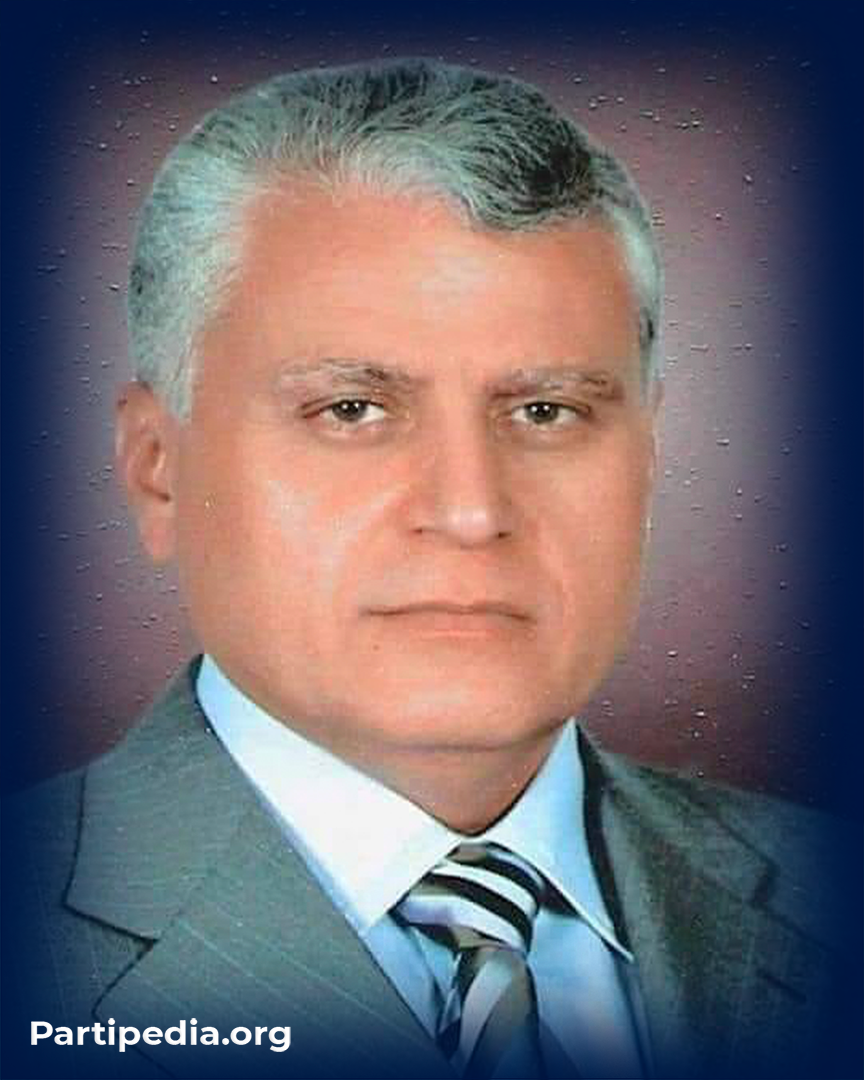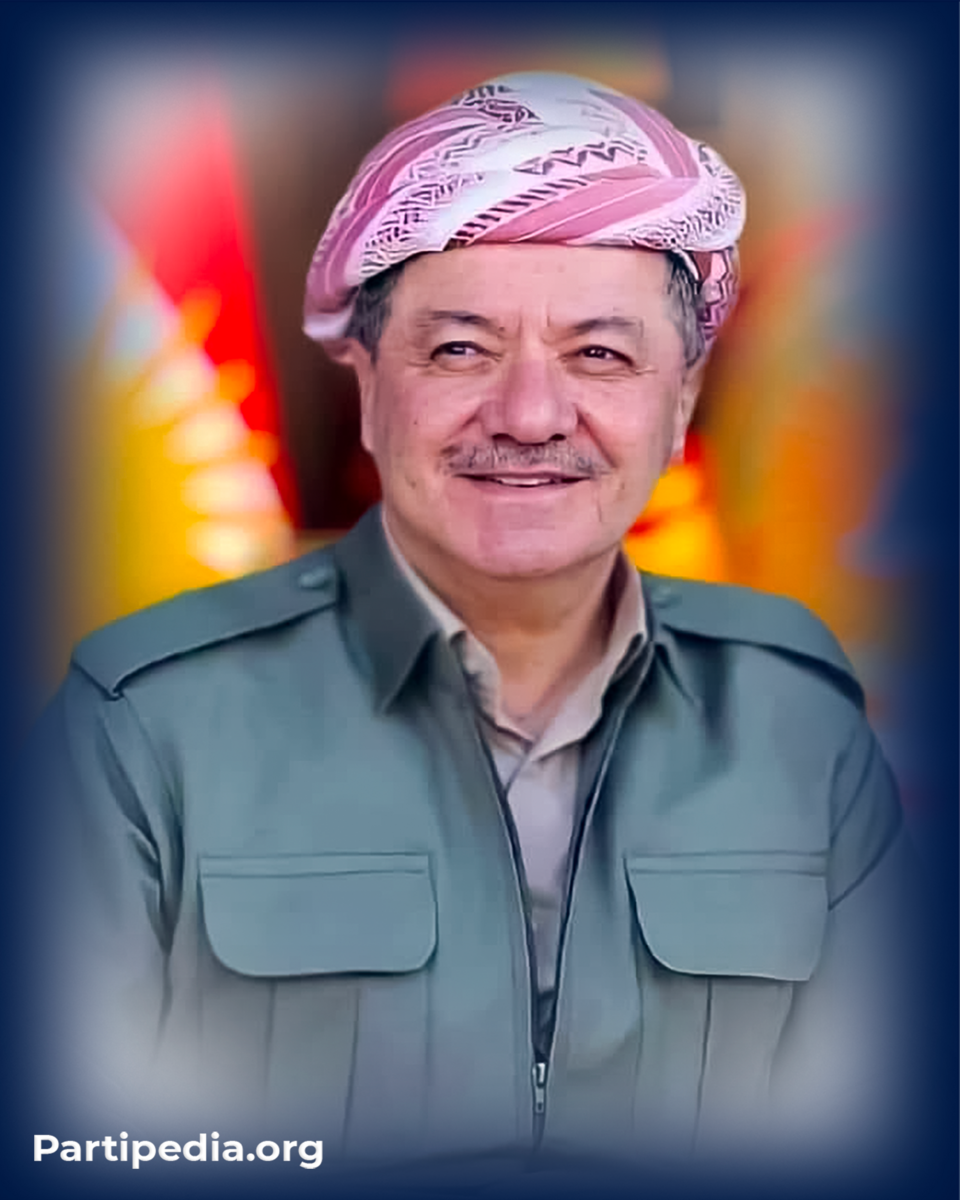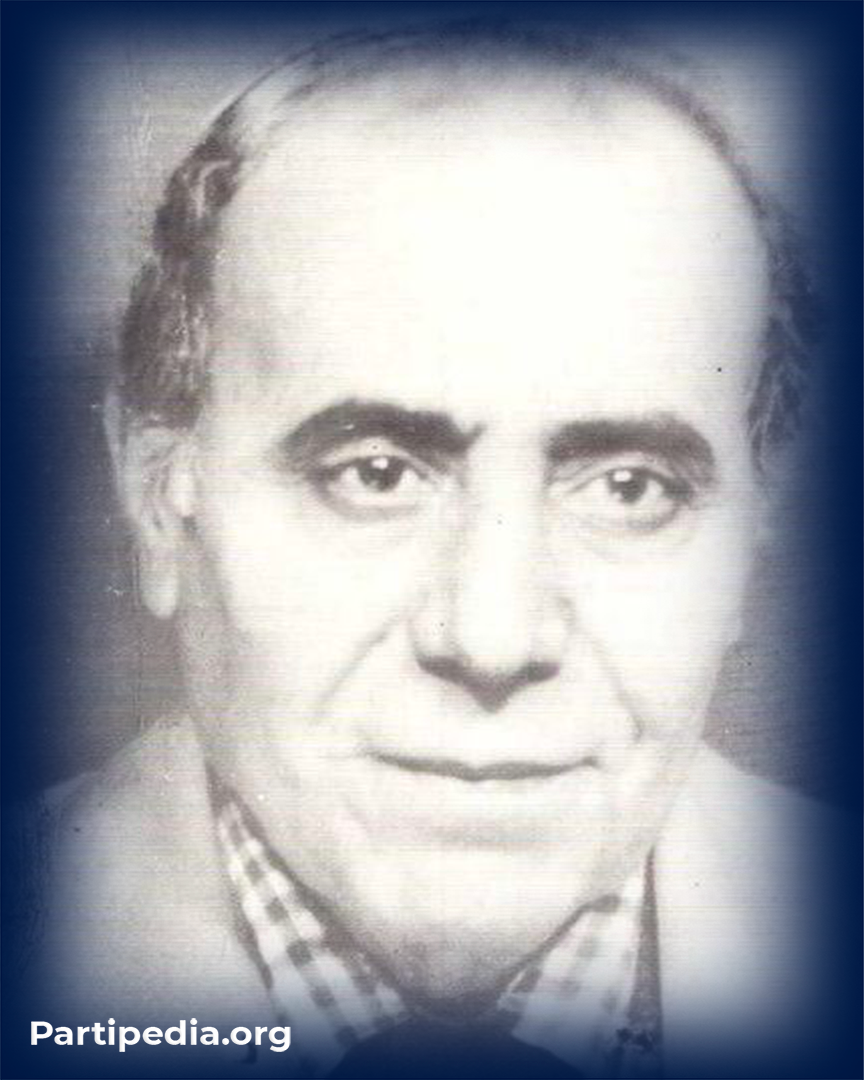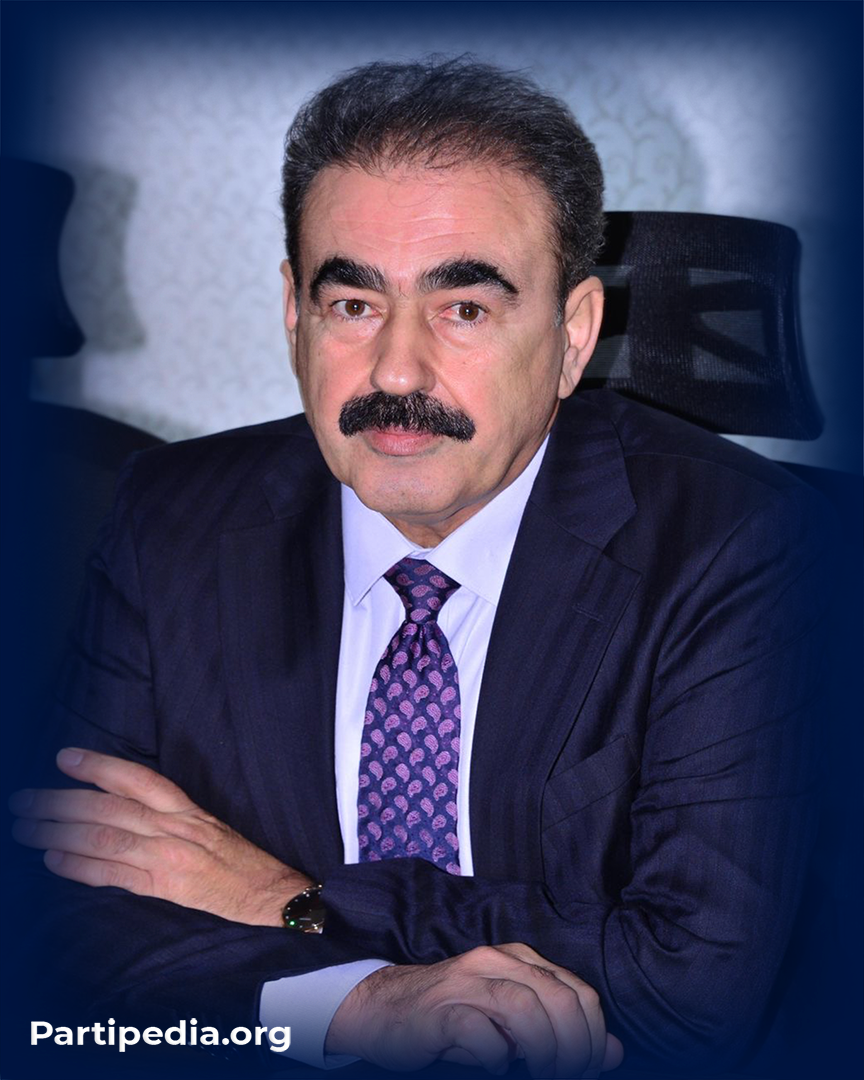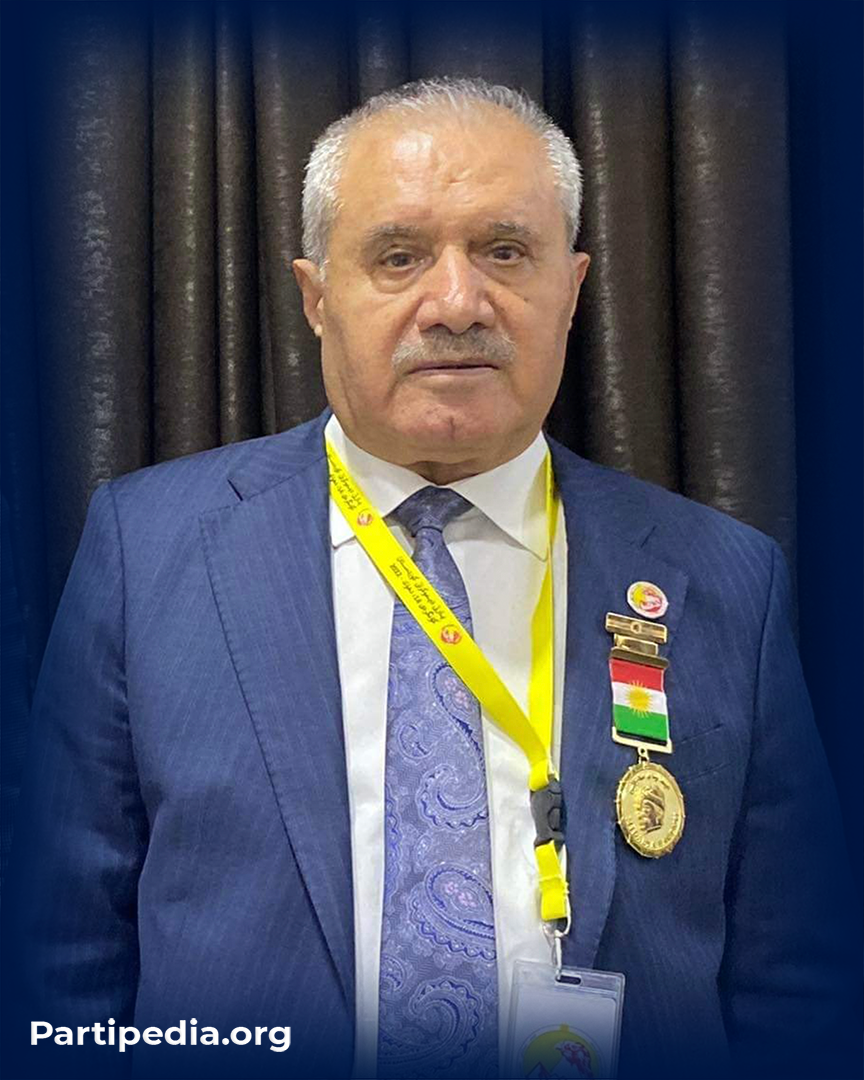Biography
Shawkat Sheikh Yazdin Mohammed Nabi was born in 1954 in Tashkent the capital of the Republic of Uzbekistan. His father, Sheikh Yazdin Mohammed Nabi (1925-1999), was a comrade of Mustafa Barzani (1903-1979) in 1947 on the historic journey to the Soviet Union. His mother was a Tatar from the Crimean Peninsula on the Black Sea. They were invaded by Joseph Stalin and deported to Central Asia during World War II. On April 16, 1959, he arrived in the port of Basra in southern Iraq by the Gurza ship. On April 18, 1959, they settled in Pirmam Resort in Erbil province. From 1961 to 1963, he helped his family financially in addition to studying in Erbil, because his father was a Peshmerga. From June 12, 1963, to September 19, 1963, he was imprisoned with nineteen Barzani families in Erbil by the National Guard.
He graduated from secondary school in 1968. In 1969, he moved with his family to the liberated areas of the September Revolution in the Pishdar region of Sulaimani province, where his father was a Peshmerga. He fled to Iran in 1975 after the collapse of the September Revolution and settled in Rabat camp in East Kurdistan. In 1991, he returned to South Kurdistan after the Kurdistan Uprising. In the February 1, 2004 tragedy, he was martyred in a suicide attack at the headquarters of the second branch of KDP in Erbil by the terrorist group al-Qaeda.
He was fluent in Kurdish, Turkish, Persian and Arabic.
Shawkat’s Striving Record
Shawkat Sheikh Yazdin Mohammed Nabi joined the ranks of the Peshmerga forces in 1974 and served as a commander in the artillery unit of the Kawa force. He participated in the shelling of these Iraqi army bases with his unit on November 14-27, 1974: Zharawa camp, Sangasar camp, Hizob camp, Dukan camp, Tuwe Sooran camp, Ranya camp countered the Iraqi army's attack on Mount Assos, Kewarash, artillery base in Kani Shinka, Shahidan Valley in Sulaimani Province, camp Kalka Kolin, Bananok camp, Harir camp, Batas camp, Sisawa camp, Mama Jalka camp, Safin mountain slopes, Shakrok mountain slopes in Erbil province, battlefields on Kewarash, Mount Assos, Qaladze Camp. In 1975, after the collapse of the September Revolution, he moved to Iran as a refugee and settled in Rabat camp in Iran. In 1975, he worked as a volunteer in the Refugee Supervisory Committee.
In 1979, he was a delegate to the 9th Congress of KDP in Zewa camp, East Kurdistan. In November 1979, he was appointed as the head of the Political Bureau of KDP. In 1980, he returned to the Zeway refugee camp for the Kurds from the south in East Kurdistan. For the purpose of striving and fighting for Kurds’ rights, he became a Peshmerga in the same year. In 1980, he was appointed in charge of providing food, ammunition, medicine and supplies to the Peshmerga forces in Badinan. In 1980, he was a member of the office of the Political Bureau of the KDP. In 1980, he worked in the media department of the KDP. On July 16, 1985, he was appointed as a member of the Finance Department and a member of the Relations Department. In 1986, he was in charge of the Relations Department of KDP. In early February 1988, he was a member of the Peshmerga salary distribution committee. In 1988, he was the administrative director of exporting goods to the Peshmergas of the Khawkurk battle.
In 1989, he was a delegate to the 10th Congress of the KDP in Hishmawa village of East Kurdistan. On December 13, 1990, he was appointed as a member of the Iranian Relations Committee, a member of the Finance Committee and in charge of the leadership's records and expenditures. In 1993, he was elected as a member of the Central Committee of the KDP-United. In 1993, he was a member of the committee to bring the immortal remains of President Mustafa Barzani and Idris Barzani from East Kurdistan to South Kurdistan. In 1993, he was appointed as the second head of the Central Bureau of Finance of the KDP-United. On July 1, 1998, he was appointed as the Acting Minister of Industry and Energy. On June 29, 1999, he was appointed as the head of the first branch of the KDP-United in Duhok. In October 1999, he was elected as a member of the Central Committee of the KDP-United by the delegates of the 12th Congress. On December 20, 1999, he was sworn in by the Kurdistan National Assembly and appointed as the Minister of Cabinet Affairs in the fourth cabinet. On August 7, 2001, he was sworn in as the Minister of Cabinet Affairs in front of the Prime Minister of the Kurdistan Government.
His Works:
1. From Bloody Mahabad to Across the Aras River 1999, three works translated from Persian entitled (From Bloody Mahabad to Bloody Ars Openings) by Najafquli Psian, (Revolt of Soldiers of Khorasan) by Abu Hassan N Tafrshian and (…) Written by Murtaza Zarbakht.
2. Kurdish Tribal Tribes of Iran - 1995, translated.
3. Barzani does not surrender to anyone, 1997, translated.
4 Golden Jubilee of Peshmerga (Album) – 1996.
5. From Iraqi Kurdistan to the Shores of Aras, 1996, translated.
Sources:
١. ئـهرشیفی دهستهی ئینسكلۆپیدیای پارتی دیموكراتی كوردستان، فایلی ژماره FB-٤٦، پیرمام، ٢٦ كانونی دووهمی ٢٠١٩ز، ل ل ١-٥.
٢. پارتی دیموكراتی كوردستان، سهرۆك، بڕیار، ژماره ٥٠، ١٤ تشرینی دووهمی ٢٠٠٢ز، ل ١.
٣. پارتی دیموكراتی كوردستان، سهرۆك، ژماره ١٠، ١٣ كانونی دووهمی ١٩٩٠ز، ل ل ٤، ٦.
٤. پارتی دیموكراتی كوردستان، مهكتهبی سیاسی، بڕیار، ژماره ١٢٠، ١٠ شوباتی ١٩٨٨ز، ل ١.
٥. پارتی دیموكراتی كوردستان، مهكتهبی سیاسی، بۆ ههمو بهشهكانی م.س ی تێكۆشهر، ژماره ٦٧٧٥، ١٨ تهموزی ١٩٨٥ز، ل ١.




